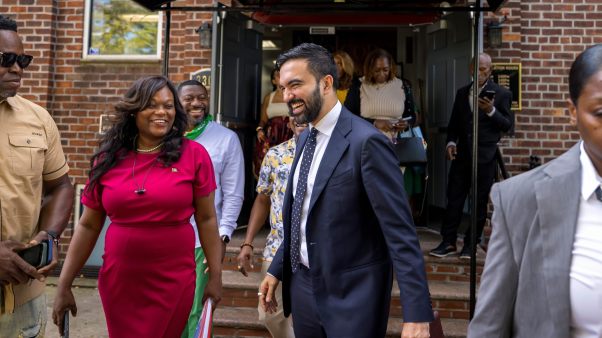Feelings tend to react like a smoke alarm. A smoke detector goes off at one hundred decibels whether someone scorched the potatoes or the house is actually on fire. Feelings, too, give a warning signal and prepare us to survive some life-threatening event, even when the event isn’t life-threatening.
On the other hand, in nearly any church conflict, a number of people will underestimate the problem. They say, “Let’s not bother with it; let’s leave it alone.”
So how do we determine how severe the conflict is? In Moving Your Church through Conflict (Alban Institute, 1984), I describe conflicts in five levels:
Level One: There’s a problem to solve in the organization, and people may disagree about how to solve it. But they believe they can work it out, and they are committed to try. They are talking directly to each other, not withholding information. As a result, most people don’t call this conflict. They say, “We’ve got problems to solve, but we can do it.”
Level Two: The focus shifts from solving the problem to caring for myself. People feel, We’ve got a problem to fix, but I don’t want to be associated with it. I’m going to be cautious, armor myself, plan before I talk to the pastor. I’ll talk with other people, but not share fully all I know about the situation. People are nervous, which you can tell because they generalize everything: “We’re not communicating. There seems to be low trust around here. There are some difficulties with the choir.” But they don’t describe the problem specifically. The role of the pastor, then, is to get people talking.
Level Three: Again the objective has changed. It’s no longer, “Fix the problem,” or “Protect myself;” it’s “Win.” People feel, You must accept my solution. It’s win or lose. I’m not contributing to the difficulty; I’m the good person who has the only possible answer.
The language in such cases is not only vague, it also overstates, distorts, and dichotomizes the conflict. For example, “Pastor, the whole church is out to get you. We are split down the middle. A few bad apples should not be in the church at all. They’re never going to change.”
People are not yet in factions, but they clump together, and we give them labels: “the pastor’s buddies,” “the old pillars of the church.”
The pastor’s role is to create a safe environment for people to air concerns and start solving them, which means thinking a lot about who should be in what conversations and how we can affirm people and hear their concerns.
Level Four: People are no longer satisfied with getting their way. Now they have to get rid of the opposition. The goal is a “divorce”-getting people to quit coming to church, firing the pastor, or disbanding a committee or ministry. People are now in factions, usually meeting in homes. There is a clear leader, sometimes two, who gives marching orders to each faction.
At this level, it’s wise to get outside help: denominational officials, a consultant, a skilled pastor or lay leaders from another congregation.
Level Five: People won’t settle for getting people to leave; now they want to remove them from the face of the earth, as we see in Palestine or Northern Ireland. In a church, the people are not satisfied with a resignation; they want to have the pastor defrocked. And if they can’t have that, they’ll call congregations where this pastor is candidating and warn them.
People at this level become fanatics. They won’t stop fighting because they feel it’s immoral to stop. They believe they are called by God to destroy the evil. The only thing you can do at this level is remove the opposing parties from each other. A pastor may need to ask for protection and support from the denomination.
-Speed Leas
Copyright © 1989 by the author or Christianity Today/Leadership Journal. Click here for reprint information on Leadership Journal.









